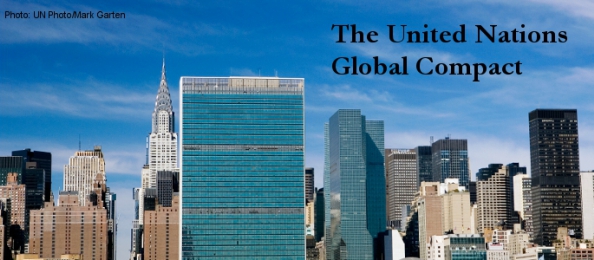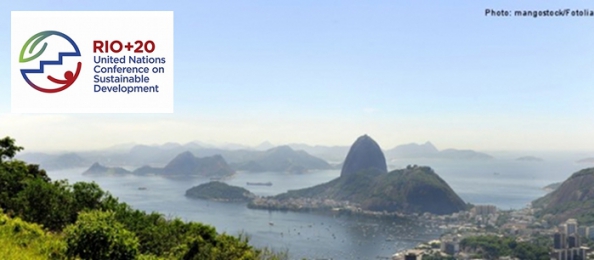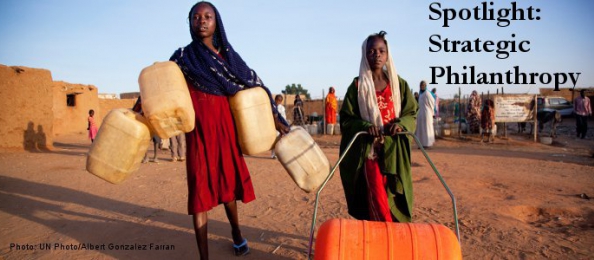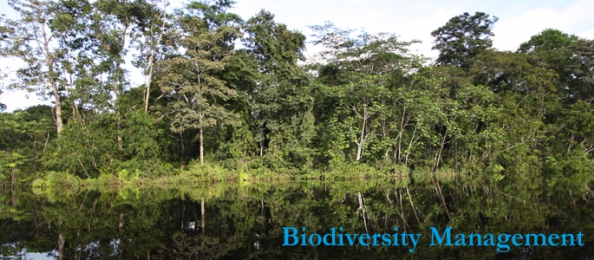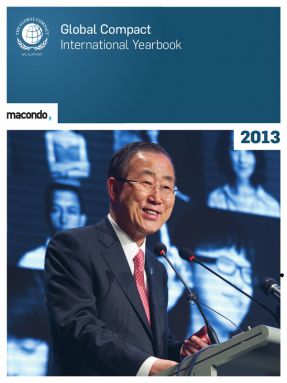All Dossiers, Specials and Spotlights:
MENA and the Arab Spring (Summer 2011) ++++ Climate Change (From Summer 2010) ++++ Eco Labels (Summer 2011) ++++ UN Global Compact (Summer 2010) ++++ CSR in Latin America (Summer 2012) ++++ Strategic Philantrophy (Summer 2012) ++++ Rio+20 (Summer 2012) ++++ Corporate Foresight (Summer 2012) ++++ Spotlight: Food Crisis (Summer 2012)++++ Integrated Reporting (Summer2013)

A Guide to ISO26000
With the design of the ISO 26000 norm, the ISO picked up suggestions proposed by their own consumer organizations pertaining to social responsibility in companies operating in global markets. ISO 26000 is not a management system standard. It is not intended or appropriate for certification purposes or regulatory or contractual use. more[...]

Biodiversity Management
Biodiversity underpins development through the provision of products such as food, fibre and medicines and ecosystem services such as the regulation of water supply and air quality. Though billions of people around the world depend on such ‘goods’ and services, this contribution is neither fully recognized nor valued in markets. more[...]
Managing Corporate Legitimacy
United Nations Global Compact International Yearbook 2013
Global Compact International Yearbook 2013
Published by Dr. Elmer Lenzen, with contributions by Hans Joachim Schellnhuber, Mark Kenber, Bertrand Piccard, Fred Nelson, Moncebi Manzini, Bonnie Campbell and Georg Kell.
Münster/New York: macondo Group/United Nations Publications 2013,196 pages, paperback. US$ 30.00
ISBN-13: 978-3-9813540-5-8
-
Managing Corporate Legitimacy and the UN Global Compact
Prof. Andreas Georg Scherer, University of Zurich
Dr. Dorothée Baumann-Pauly, University of ZürichIn this article, we explain why managing legitimacy is vital for corporations and how business firms can employ strategies to maintain their legitimacy. We then discuss the organizational capacities that each legitimacy strategy implies and point out their inherent tensions. Based on the results of an empirical study, we show how two large corporations have handled these tensions and successfully introduced organizational prerequisites for managing legitimacy. In the final part of this article we elaborate on how participants of the UN Global Compact can use the initiative to strengthen their legitimacy. more[...]
The Author
-
Dangerous tales: Dominant narratives on the Congo and their unintended consequences
Prof Séverine Autesserre, Columbia UniversityLife conditions in the eastern part of the Democratic Republic of Congo have deteriorated significantly since the end of the transition to peace and democracy in late 2006. Each year, the people of the eastern provinces feel less secure than the year before. [1] There were more people internally displaced in 2010 than at the end of 2006. [2] Armed groups, including the Congolese army, relentlessly commit horrific violations of human rights. The Congo has dropped twenty places (from 167 to 187) in the Index of Human Development, officially becoming the least developed country on earth.[3] Overall, current conditions for the populations of the eastern Congo remain among the worst in Africa. more[...]
The Author
-
When Job Earnings are Behind Poverty Reduction
World BankImprovement in labor market conditions has been the main explanation behind many of the poverty success stories observed in the last decade – that is the primary conclusion of an analysis of changes in poverty by income source. Changes in labor earnings were the largest contributor to poverty reduction for a sample of 16 countries where poverty increased substantially. more[...]
The Author
-
The De-Carb Diet
Dr. Elmer LenzenTo comply with global climate targets, we have to reduce our carbon footprint – no ifs, ands, or buts. Nevertheless, there are a lot of challenges we need to face first. more[...]
The Author
-
Study Shows how Easy it is to Set Up Untraceable Companies
Dennis LohmannA new study, published by the inter-governmental Financial Action Task Force (FATF), highlights the danger coming from shell companies. These companies without real employees and offices could have legitimate uses but are used although by money launderers, financiers of terrorism, sanctions busters and tax evaders. more[...]
 The Author
The Author
-
Corporate Responsibilities in the Context of the Post-2015 Sustainable Development Agenda
Prof. Dr. Klaus LeisingerExtreme poverty, poor health, inadequate nutrition, and other forms of human deprivation are widespread and reduce development opportunities of the generation living today. One result is increased internal as well as international migration – depriving rural areas and poor countries of the most valuable development resource: the initiative and skills of young people. Even in rich countries, income and wealth disparities are widening, and high unemployment – particularly among young people – is becoming endemic. The world population will grow from today’s 7.2 billion people to more than 9 billion by the year 2050. more[...]
The Author
-
Responsible Lobbying
Dr Stephanos Anastasiadis, Royal Holloway, University of London
Dr Sigrun M. Wagner, Royal Holloway, University of LondonLobbyists paying elected representatives to place questions in the UK parliament. Arms manufacturers giving South African officials BMWs in exchange for armaments contracts. Smoke-filled back rooms featuring stuffed brown envelopes. No wonder lobbying has a bad name. But these are not images of lobbying: They depict corruption, albeit in a policymaking setting. These actions are morally suspect and usually illegal. They also contravene the UN Global Compact: Principle 10 requires the combating of corruption. more[...]
The Author
-
Operationalizing Sustainability Targets: An Introduction to the Sustainable Value Approach
Prof. Dr. Frank FiggeOver the last decades, sustainability has been accepted by policy makers and corporate managers alike as a relevant and legitimate goal. In this context, the current UN-level efforts to formulate Sustainable Development Goals (SDGs) can be expected to further consolidate the sustainability agenda and to help relevant actors to address today’s key global sustainability challenges. more[...]
 The Author
The Author
-
A Chinese Farm in Africa
Lila Buckley, International Institute for Environment and DevelopmentChen promotes new agricultural techniques in China, but he dreams of farming in Senegal. Not because he is a cog in a neo-colonial machine driven by a Beijing masterplan to take over Africa, but because he wants to share his skills and do something meaningful. more[...]
 The Author
The Author
About Us // Privacy Policy // Copyright Information // Legal Disclaimer // Contact
Copyright © 2012-2018 macondo publishing GmbH. All rights reserved.
The CSR Academy is an independent learning platform of the macondo publishing group.






